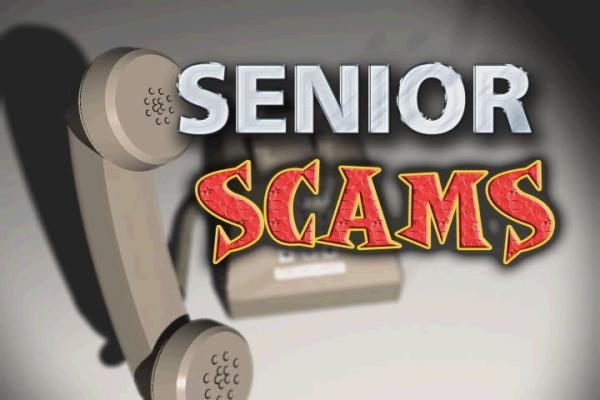Tips to Prevent Fraud
November 19, 2014
- Never respond to an offer that you don't understand and ask for it in writing. Pay only when you have received a performed service.
- Don't carry your Medicare card in your wallet. Make a copy of your Medicare card and block out the last four digits of your Social Security number so if you lose it or your wallet is stolen, no one can get your full Social Security number.
- Do not sign blank insurance forms or give blanket authorizations.
- Be wary of requests for information by phone. Don't respond to incoming phone calls requesting personal information. If a creditor or organization calls with a seemingly legitimate need for your personal information (account numbers, Social Security number, or credit card information),hang up and verify the phone number and legitimacy of the caller before returning the call. Fraudulent telemarketers aren't just pushy salespeople trying to make a living—they are hardened criminals out to take their victims’ life savings. They're so good at what they do, they can even persuade people to mortgage their homes to participate in their phony sweepstakes, investment offers, and other schemes. Sometimes they use scare tactics to sell products or services. In other cases, they impersonate well-known companies or charities to trick seniors.
- Do not do business with telephone or door to door salespeople.
- Don't carry more personal documents than necessary with you when you leave the house. Leave Social Security numbers, checks, extra credit cards, Medicare cards, and financial statements in a locked security box at home or another secure location. If you're ever admitted into the hospital or other care facility, credit cards and personal documents should be locked up or put in the hands of someone you trust. Adopt a need-to-know approach to your Social Security number and mother's maiden name. If a business asks for this information, ask what it will do with the information, why the company needs it, how the company will protect it, and what will happen if you refuse to provide this information.
- Be wary of anyone who offers you a free deal. When taking a phone call, hang up if you hear these phrases "free," "low cost" or "act now."
- Shred anything you don't need to keep, such as documents that contain account information, Social Security numbers, PINs, or sensitive information -- including credit card statements, other bills, credit card receipts, unused checks, canceled checks, and credit reports. Also shred or otherwise destroy expired credit cards and driver's licenses. And never leave receipts at bank machines, bank counters, trash receptacles, or gas pumps. If your not sure how long you should keep something this website gives you a guideline: https://www.usa.gov/Topics/Money/Personal-Finance/Managing-Household-Records.shtml
- Do not respond to unsolicited requests and don not sign any documents from an unsolicited person.
- As tech-savvy seniors know, you should protect your computer and your Internet activity. Consult with a network professional to make sure your computer system is secure. Install antivirus software, anti-spyware, and firewall software to prevent cyber-programs that steal personal information. Use unique passwords for your computer and any online accounts and change them on a regular basis. A strong password includes a mix of numbers, symbols, and both upper- and lowercase letters. Don't use your birthday or pet's name, your phone number, or anything that could be easy to guess. Never send personal information via email, and never respond to emails asking you to verify your password, account number, Social Security number, or credit card numbers.
- Don't let salespeople pressure you into immediate purchases and understand contract terms, basic fees and extra services.
- When you're out of town or out of the country, consider purchasing a portable router to create your own Wi-Fi hotspot so you can safely use your laptop, tablet, or smartphone while on the road. You'll need a local SIM data card, which is available at most electronic stores and at airport kiosks for travelers. This will help you avoid using public Wi-Fi spots. Also, before going on vacation, ask the post office to place a vacation hold on all mail.
- Don't buy from unknown companies and don't pay for anything until you receive it.
- Many seniors don't think about checking their credit since they're often not in the market to borrow money for a house or car. You should, however, request a free credit report via annualcreditreport.com on a regular basis. You can request your credit report from one of the three credit reporting agencies at a time (and therefore check your credit three times each year for free) or sign up for a credit monitoring service to make sure no suspicious activity occurs.
- Do not disclose any personal or financial information to charities and check to see that the charity is registered with the state. Qualified charities will not ask for all of this information. You can also find a charity you are familiar with and donate locally.
